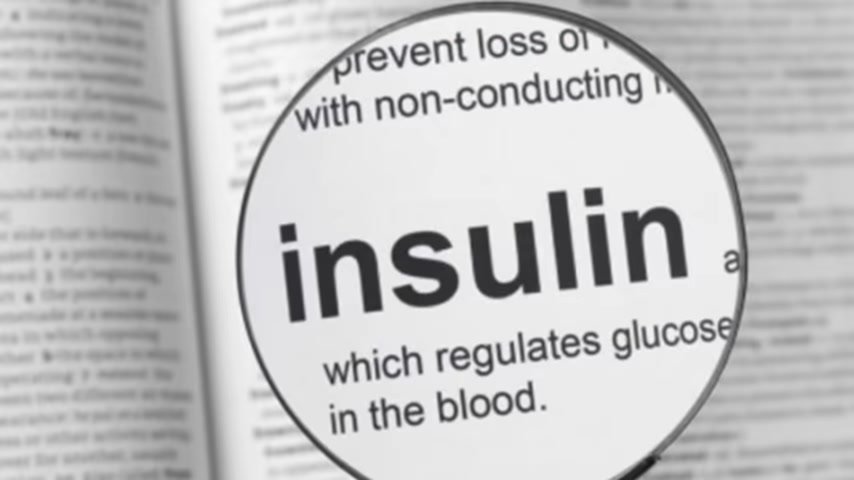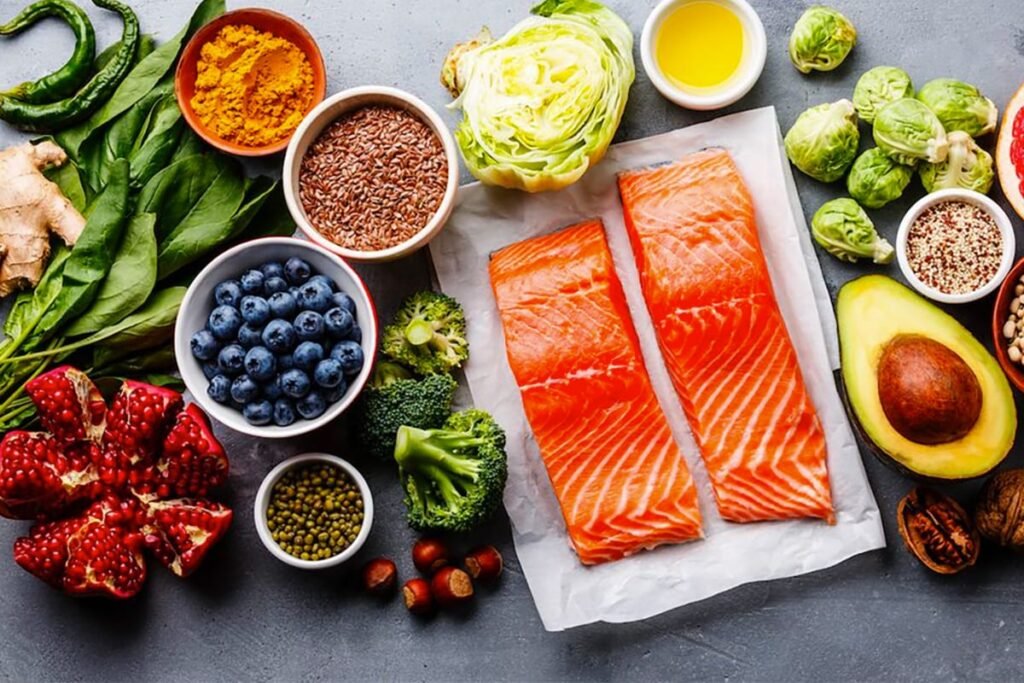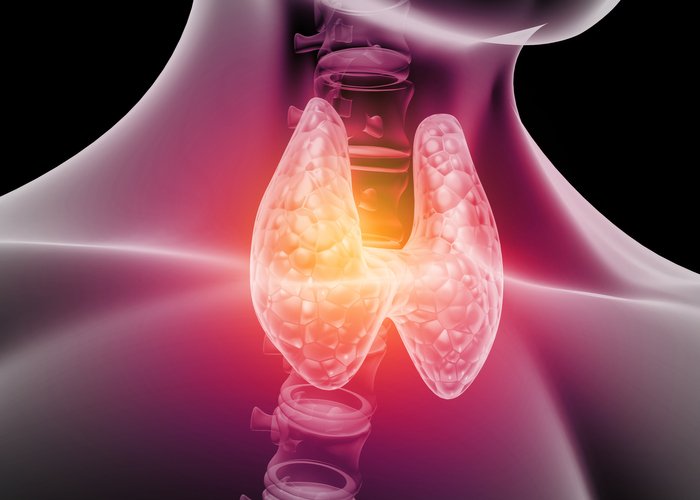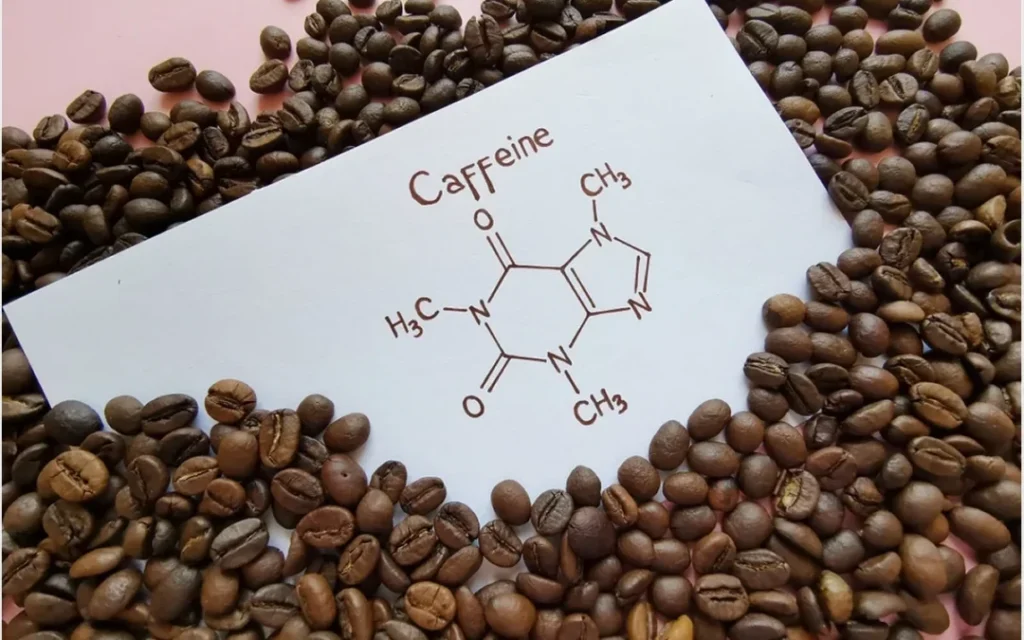Table of Contents
Are you tired of feeling sluggish and struggling to lose weight?
What if I told you that boosting your metabolism could be the key to unlocking your body’s full potential?
Imagine waking up every day feeling energized, burning fat effortlessly, and finally achieving your fitness goals.
In this blog post, we’ll reveal the secrets to supercharging your metabolism and transforming your body. Keep reading to discover how you can start your metabolic makeover today!
Brief The Article:
Can a person actually increase their metabolism?
Yes, a person can increase their metabolism through various strategies:
- Addressing insulin resistance
- Engaging in high-intensity exercise
- Proper nutrition
- Supporting thyroid function
Key Strategies to increase Metabolism
- Tackle Insulin Resistance:
- Use keto diet and intermittent fasting to lower insulin levels
- This helps overcome weight loss plateaus
- Optimize Exercise:
- Focus on high-intensity workouts
- Perform full-body exercises involving multiple muscle groups
- Aim for short duration, high-intensity sessions with longer recovery periods
- Nourish Your Body:
- Avoid low-calorie, low-nutrient diets
- Consume nutrient-dense foods to support metabolic health
- Enhance Thyroid Function:
- Consider adding sea kelp for iodine and trace minerals
- Ensure proper gallbladder and liver function
- Manage insulin levels
- Avoid GMO foods
What Not to Do
Avoid relying on stimulants for weight loss:
- Caffeine, amphetamines, and ephedra can provide short-term results
- These stimulants can lead to adrenal fatigue and long-term weight gain
- Quick fixes often come with negative side effects
So let’s dive into the details…
Insulin Resistance: The Metabolic Roadblock

So someone had a question: can a person actually increase their metabolism? Okay, let’s talk about that. Well, one of the things that you may have learned in other topics is that insulin resistance is one factor that can cause you to plateau with your weight.
Let’s say you’re losing weight and you hit this setpoint you just cannot get below, like your body is real comfortable at a certain weight. That is because of insulin resistance.
There’s just too much insulin in the body, and people that are struggling with weight and that are overweight have a lot more insulin in their body because insulin resistance increases the amount of insulin in your body.
Overcoming Insulin Resistance
- Insulin resistance can cause weight loss plateaus
- Overweight individuals often have higher insulin levels
- Solution: Lower insulin with keto and intermittent fasting
Exercise: The Key to Boosting Metabolism

Now out of all the parts of exercise, you have duration (how long you exercise), you have the intensity of the exercise, you have the frequency of how often you exercise, you have the recovery of how long you recover after exercise.
You have all these variables. Out of all of them, it’s the intensity that is the most important factor in raising your metabolism. So then we have exercise. Okay, you have several variables:
you have duration (how long you exercise), the intensity (how hard you exercise), and you have recovery (how long you don’t exercise after exercising).
Okay, out of all three of these variables, the intensity is the most important in stimulating and increasing metabolism.
The Power of High-Intensity Workouts
- Intensity is crucial for boosting metabolism
- Stimulates growth hormone (main fat-burning hormone)
- Triggers other hormones like adrenaline and glucagon
It also stimulates growth hormone, which is the main fat-burning hormone, and other hormones too, like adrenaline and also glucagon.
Okay, that’s the fat-burning hormone. The key is doing a full body workout where you’re involving a lot of muscle groups and doing it at a high-intensity level but doing it a shorter duration because we want the duration short and we want the recovery longer. So high intensity, short duration, long recovery.
Optimal Workout Strategy
- Full-body workout involving multiple muscle groups
- High-intensity, short duration sessions
- Longer recovery periods
Okay, so let’s say you’re going to workout for 40 minutes. You would do this full body high intensity short workout where your pulse rate is really spiked, and you’re gonna rest until your pulse rate comes all the way down.
Do it again for 40 minutes. That would be the ideal scene, but of course, work into it and probably use a personal trainer.
But this is what you need to know: it’s the intensity that will trigger and increase your metabolism and your mitochondria, which are the little energy factories in the cell.
Nourish: Fueling Your Metabolic Fire

Number three, you probably destroyed your metabolism from doing a low-calorie diet, which is really a low-nutrient diet. So to fix that, you need to nourish the body.
So consume nutrient-dense foods. Okay, so that’s a given. You just can’t heal the body with low nutrients. It’s just impossible.
Repairing a Damaged Metabolism
- Avoid low-calorie, low-nutrient diets
- Focus on consuming nutrient-dense foods
- Proper nutrition is essential for metabolic healing
Enhance the Thyroid Function: Metabolic Powerhouse

Number four, enhance the thyroid function. So you may need to add sea kelp, which has the iodine and other trace minerals.
Selenium is really, really good with Hashimoto’s. But mainly make sure your gallbladder is functioning and the liver.
Make sure that your insulin is not too high and also avoid the GMO foods, which are really responsible for blocking the thyroid and even creating autoimmune problems with the thyroid.
Supporting Thyroid Health
- Add sea kelp for iodine and trace minerals
- Consider selenium, especially for Hashimoto’s
- Ensure proper gallbladder and liver function
- Manage insulin levels
- Avoid GMO foods
What Not to Do: Avoiding Metabolic Pitfalls

Okay, now the other thing on the flip side, you have caffeine, amphetamines, ephedra, which all are stimulants to the metabolism, right?
So people take them and they go on a diet and then they’re no longer hungry, and they lose all this weight. But the problem is it comes with a package. It stimulates adrenaline. That stimulation ends up burning out adrenaline receptors and the adrenal gland itself.
So you end up with adrenal fatigue, and then you start gaining weight. So this is not the way you want to lose weight. This is a quick fix which comes with a package.
Dangers of Stimulants for Weight Loss
- Caffeine, amphetamines, and ephedra are common stimulants
- Short-term weight loss often leads to long-term problems
- Can cause adrenal fatigue and eventual weight gain
How to Boost Your Metabolism
- Address insulin resistance through keto and intermittent fasting
- Engage in high-intensity, full-body workouts
- Consume nutrient-dense foods to nourish your body
- Support thyroid function with proper nutrition and lifestyle choices
These are the four things to focus on to restore the metabolism and actually increase your metabolic rate.
Read More For Slow Metabolism
Summary
How to increase metabolism:
- Insulin resistance
If you have plateaued with your weight, it could be because of insulin resistance. To fix this, you need to lower insulin by doing keto and intermittent fasting. - Exercise
There are a lot of variables when it comes to exercise. Out of all of the variables, the intensity is the most important factor in raising your metabolism. It also stimulates growth hormone, which is the main fat-burning hormone. You want to do a full-body workout at a high-intensity level, but for a short duration with a long recovery. - Nourish
You may have destroyed your metabolism by doing a low-calorie diet, which is really a low nutrient diet. To fix this, you need to consume more nutrient-dense foods. - Enhance the thyroid function
To do this, you may want to consume more sea kelp, which has a lot of trace minerals. You also need to make sure you’re supporting your gallbladder, and make sure that your insulin is not too high. You would also want to avoid GMO foods.
What not to do to speed up metabolism:
You have things like caffeine, amphetamines, and ephedra that people take to stimulate metabolism. But, this can also stimulate adrenaline, which can cause adrenal fatigue, which can then lead to weight gain.
Additional-resources
FAQ
How to increase metabolism fast?
To increase your metabolism quickly, try these effective strategies:
- Engage in high-intensity interval training (HIIT) exercises
- Increase your daily water intake
- Consume more protein-rich foods
- Get adequate sleep (7-9 hours per night)
- Incorporate strength training into your workout routine
- Drink green tea or coffee in moderation
- Stand up and move more throughout the day
Remember, consistency is key when trying to boost your metabolism.
What is a fast 4 metabolism?
The “Fast 4 Metabolism” refers to a dietary approach that focuses on eating four specific food groups to boost metabolism:
- Proteins: Lean meats, fish, eggs, and plant-based proteins
- Vegetables: Especially leafy greens and fibrous vegetables
- Healthy Fats: Avocados, nuts, seeds, and olive oil
- Low-glycemic Fruits: Berries, apples, and citrus fruits
This approach aims to balance blood sugar levels, increase satiety, and promote fat burning by emphasizing nutrient-dense foods that support metabolic health.
What is the 2 2 2 method metabolism?
The 2 2 2 method for metabolism boosting involves:
- 2 liters of water: Drink at least 2 liters of water daily to support metabolic processes
- 2 meals with protein: Consume protein with at least 2 meals per day to increase thermic effect of food
- 2 metabolism-boosting activities: Engage in 2 metabolism-enhancing activities daily, such as HIIT workouts, strength training, or active recovery exercises
This simple method can help create a consistent routine for supporting a healthy metabolism.
What are the 5 metabolic superfoods?
The top 5 metabolic superfoods known to boost metabolism include:
- Chili Peppers: Contain capsaicin, which can increase calorie burning
- Green Tea: Rich in catechins that may enhance fat oxidation
- Lean Protein: Such as chicken, turkey, and fish, which have a high thermic effect
- Whole Grains: Provide complex carbohydrates and fiber to stabilize blood sugar
- Berries: Packed with antioxidants and fiber to support metabolic health
Incorporating these foods into your diet can help support a healthy metabolism and overall wellness.
Foods that increase metabolism and burn fat
Several foods are known to boost metabolism and promote fat burning:
- Eggs: High in protein and essential nutrients
- Spicy foods: Contain metabolism-boosting compounds
- Green tea: Rich in catechins and caffeine
- Coffee: Contains caffeine which can increase metabolic rate
- Legumes and pulses: High in protein and fiber
- Ginger: May have thermogenic properties
- Fatty fish: Rich in omega-3 fatty acids and protein
- Apple cider vinegar: May help with fat oxidation
Incorporate these foods into a balanced diet for optimal metabolic benefits.
Fat burning foods
These foods are known for their fat-burning properties:
- Avocados: Rich in healthy fats and fiber
- Nuts: Contain protein and healthy fats
- Coconut oil: Contains medium-chain triglycerides (MCTs)
- Chia seeds: High in fiber and omega-3 fatty acids
- Grapefruit: May help regulate insulin levels
- Greek yogurt: High in protein and probiotics
- Cinnamon: May help stabilize blood sugar levels
- Hot peppers: Contain capsaicin, which can boost metabolism
Remember to consume these foods as part of a balanced diet and healthy lifestyle.
What foods speed up female metabolism
Women can benefit from these metabolism-boosting foods:
- Lean proteins: Chicken, turkey, fish, and tofu
- Cruciferous vegetables: Broccoli, cauliflower, and Brussels sprouts
- Leafy greens: Spinach, kale, and Swiss chard
- Berries: Strawberries, blueberries, and raspberries
- Fermented foods: Kimchi, sauerkraut, and kefir
- Green tea: Rich in antioxidants and metabolism-boosting compounds
- Nuts and seeds: Almonds, walnuts, and flaxseeds
- Whole grains: Quinoa, brown rice, and oats
These foods can support hormonal balance and overall metabolic health in women.
Supplements to boost metabolism
While a balanced diet is crucial, these supplements may help support metabolism:
- Caffeine: Can increase metabolic rate and fat oxidation
- Green tea extract: Rich in catechins and EGCG
- Protein powder: Supports muscle growth and has a high thermic effect
- L-carnitine: May aid in fat metabolism
- B-complex vitamins: Essential for energy metabolism
- Chromium: May help regulate blood sugar levels
- Conjugated linoleic acid (CLA): May support fat loss
- Capsaicin: Found in chili peppers, can boost metabolism
Always consult with a healthcare professional before starting any new supplement regimen.
Metabolism booster foods
These foods are known to give your metabolism a natural boost:
- Lean meats: Chicken, turkey, and grass-fed beef
- Fatty fish: Salmon, mackerel, and sardines
- Legumes: Lentils, chickpeas, and black beans
- Chili peppers: Jalapenos, habaneros, and cayenne
- Green leafy vegetables: Spinach, kale, and collard greens
- Whole grains: Quinoa, brown rice, and oats
- Apple cider vinegar: May help with fat oxidation
- Seaweed: Rich in iodine, which supports thyroid function
- Brazil nuts: High in selenium, important for metabolism
- Water: Essential for all metabolic processes




